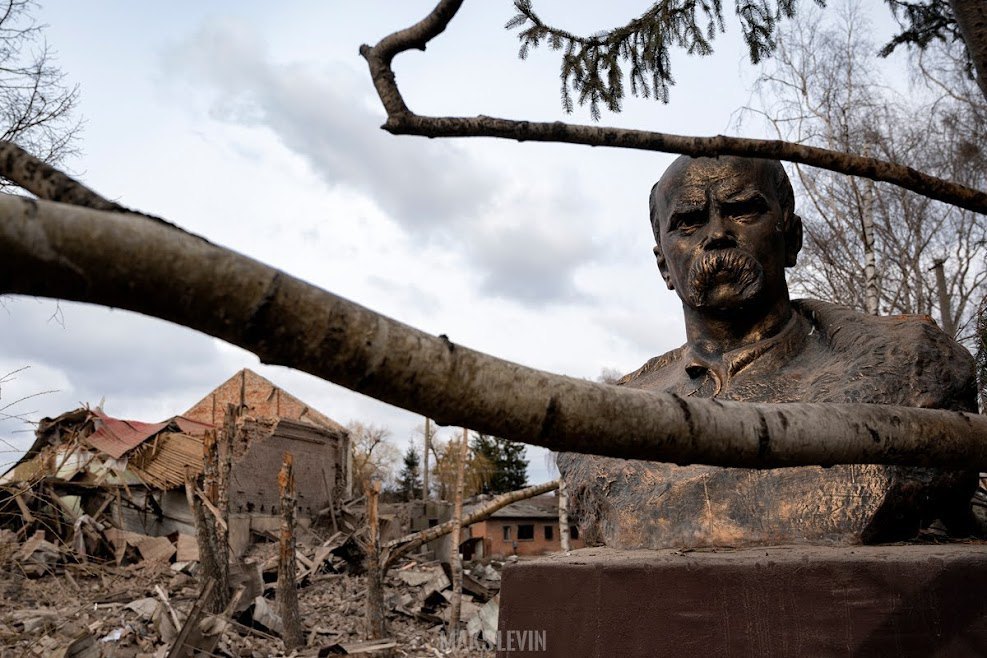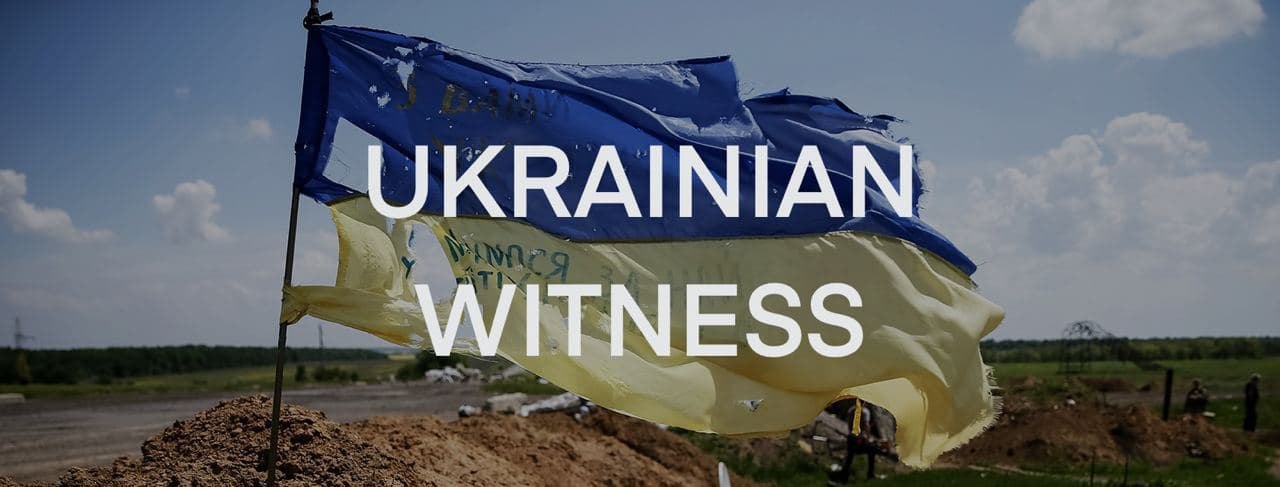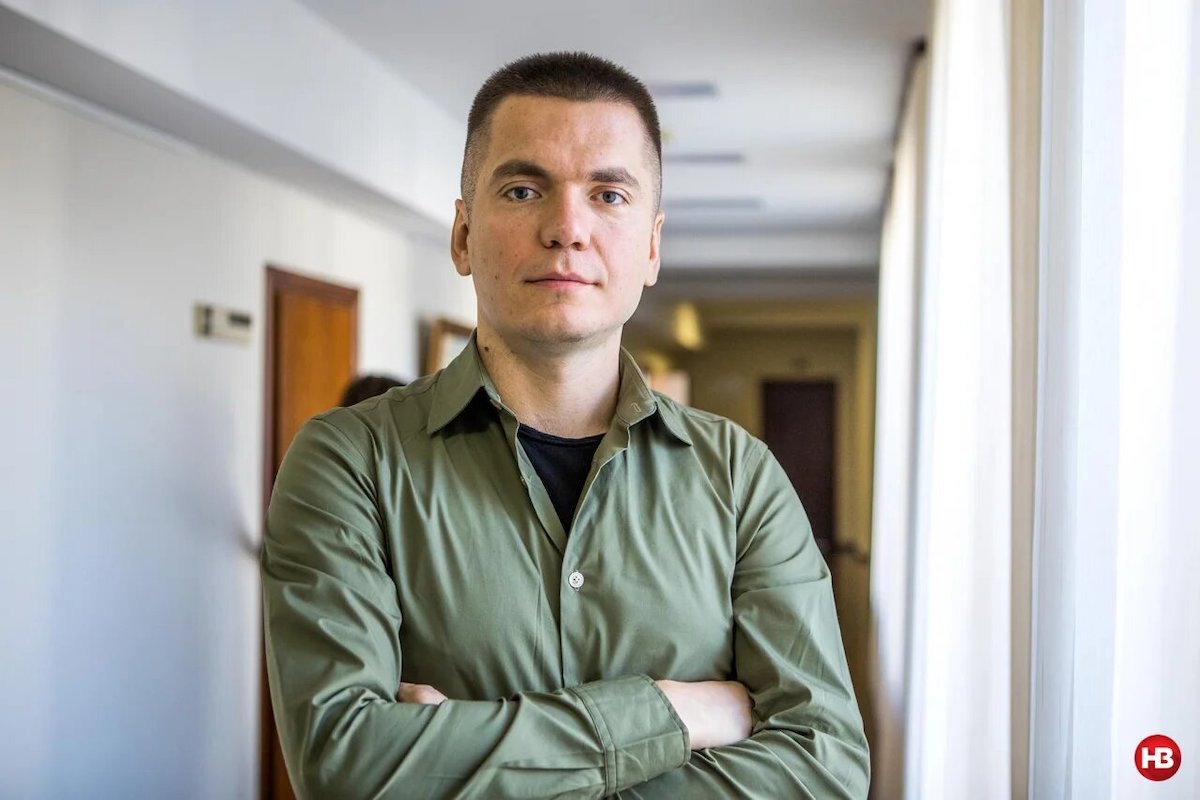
"War gives a lot of space for humanity"
As far as I understand, there are parallel tasks and this evidence and materials can be used against the russian federation in international courts.
Yes, wherever we observe war crimes; I think we can. However, we don’t specifically focus on this. Going on an emergency response with the Ministry of Internal Affairs and the State Emergency Service of Ukraine, documenting what was burnt or got hit isn’t our main objective. Of course, when a certain state service sends us requests we provide all the information, and cooperate but not more than that.
The main goal is to document everything so that this war can’t be rewritten. Unlike WW2, which russians have dramatically rewrote.
In fact, there are many stories happening at the moment, but not getting documented later. In the course of war people demonstrate the best and the worst they have in them. For example, russians rape women, loot houses, steal money and shell humanitarian corridors. At the same time Ukrainians and other nationalities demonstrate great character traits. Frankly speaking, war has a lot of space for humanity.
We will definitely talk about concrete examples. Now, I would like to clarify, how do you organise the process itself? How do you pick topics?
Actually it’s a mix. We’ve created a team on the second day of war. My idea was very simple - I saw, like in 2014, there was a lot of information. It was important to document everything, but some places were physically fully or partially inaccessible, prohibited to photograph, therefore there was a content gap that had to be filled. Another thing was a huge number of journalists, cameramen, video makers who were eager to work but couldn’t. Partially because of their media. So we had to give an opportunity to them, thus created a team of approximately 50 people, all volunteers. This means they continue working for their employer while helping us, for free or by using their savings.
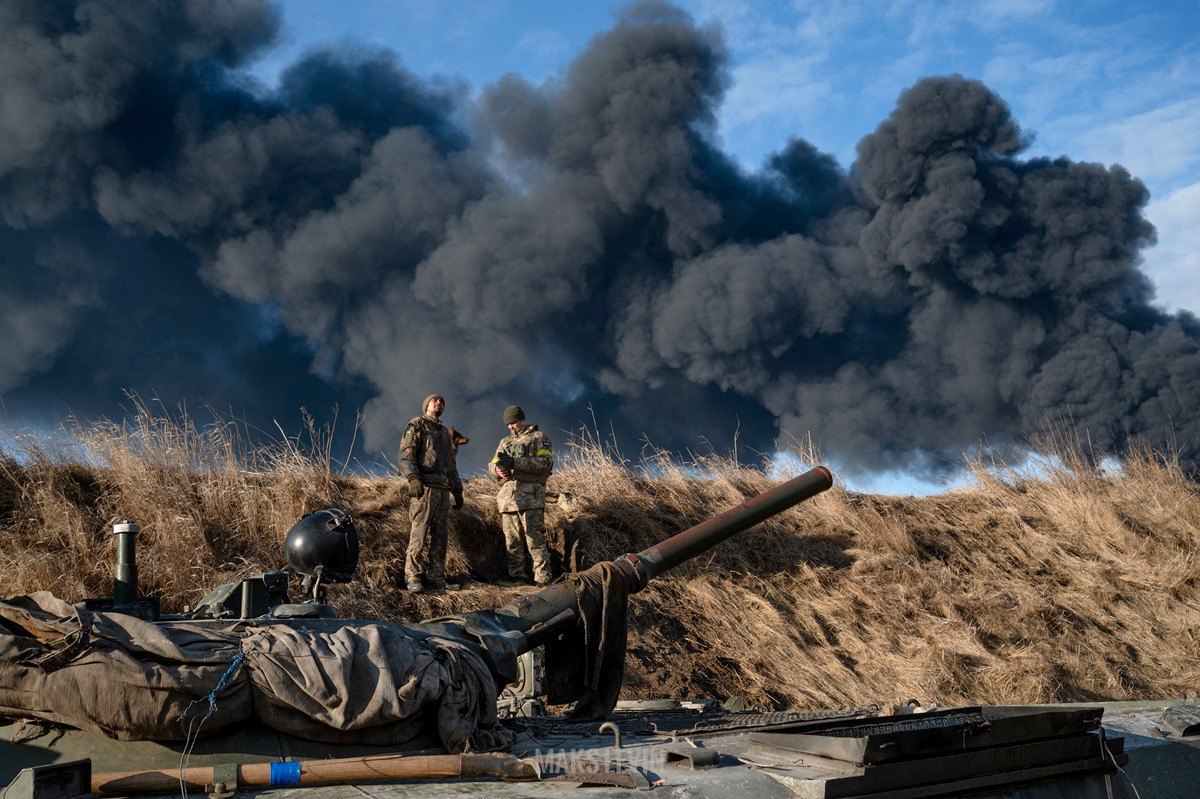
At the beginning, when I spoke about the ties with the fund, I meant the extensive network of contacts you have collected throughout the years which is helping now with what you are doing in “Ukrainian Witness”.
Ukraine is very similar to Italy, in this sense. A lot is based on relationships between people. Many things get solved if you know someone who knows someone, etc. This is why the social capital acquired during the time with the fund works well for “Ukrainian Witness”.
You have launched the project in three languages - Ukrainian, English and Russian. The latter one had only 93k followers in the telegram channel. Have you heard any feedback? Do you understand their reaction to what's happening in Ukraine?
This is just an ‘outlet’ to disconnect a little bit. For the west we put an emphasis on high quality content on YouTube, Facebook so that it can be further shared by western media. Our telegram channel is run by just a handful of people who, by the way, are now in, how to put it, very funny places. On telegram we share the information about dead and captured soldiers. This is for them to understand that their so-called “special operation” isn’t going according to the plan. To say the least. To say that they comprehend, I’m not so sure about it, but, as someone, let’s call him a famous diplomat, once said : “it’s unclear if there ever is a riot or government overthrow, but they definitely have to suffer”. At first, we thought they were understanding, but then we opened one post and it had around 400 comments with hatred towards Ukrainians.
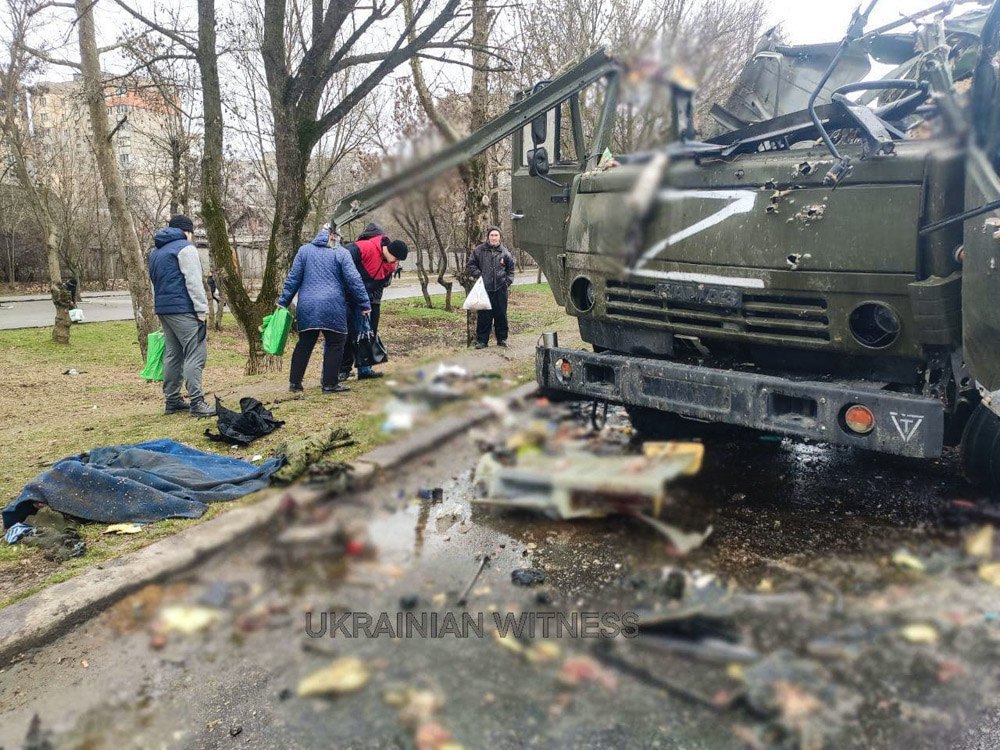
Is it painful for them to realise that they, every one of them, is involved in atrocities taking place in Ukraine?
It’s difficult for us, Ukrainians to acknowledge our mistakes, miscalculations. Russians aren’t able to do so at all. It’s far beyond them. They aren’t vocal about it but, from their reaction, I can see that they are hurting. Bravado, pride for ‘the second best army in the world’ has somehow disappeared. This is good. The harder it is for for them, the easier it will be for us.
My favorite telegram channel right now is ‘Look up yours' . Especially when captured soldiers who call their mothers telling what they've witnessed, experienced while mothers reply that it’s all a lie and, if Putin hadn’t attacked Ukraine, Ukraine would have attacked Russia. Saying this to their own sons in captivity, yeah. There’s one thing that interests me: what gets more reaction, the coffins with their sons or a shortage of sugar in supermarkets?
First and foremost, a person is shaped by the environment around them, specifically by the info space they are in. Years after years they are told in a manner that doesn’t allow any confrontation, exactly the same information. It lays well on their obedient mentality. Also I don’t think there will be a miracle there and people will rise up. It’s like in “Ivan Godunov” - “ people are silent”. It’s a problem for us as it gives Putin resources: he can announce mobilization, increase military budget and they would take it all. Unfortunately the line that russians need to cross to think about their rights, lift their heads is really far. It was a moment of sadness, I’m sorry.
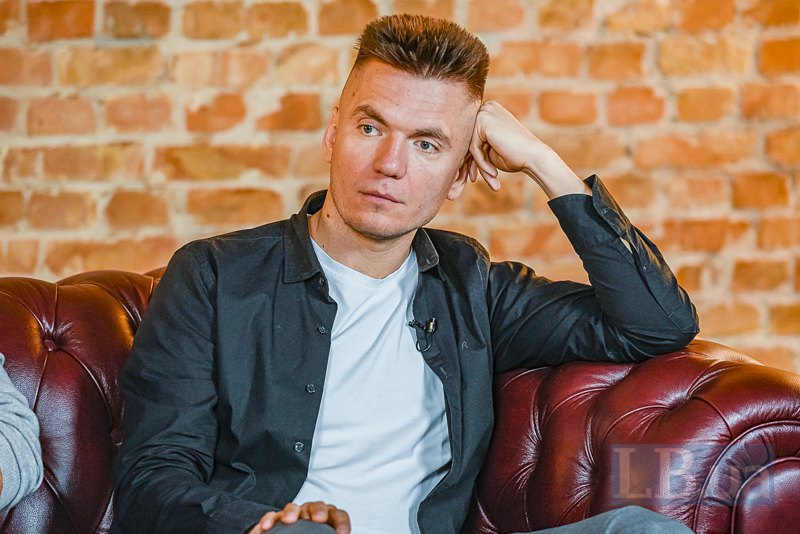
‘You can almost smell fear in Lviv. Kyiv smells like freedom’
Let’s talk about ‘Ukrainian Witness’. You’ve released dozens of stories. Which one was the most favorite, special, emotional?
I’ll tell you about a story on medicine- how Kyiv treated during the war. It’s clear that it’s war time medicine, but right now there are two or three million people in the city who can get sick and need to visit doctors. Video shooting where we filmed a few private clinics, the Kyiv City Heart Center, and a maternity hospital took 2 days. The deepest monologues came from maternity hospital doctors and a woman who was due in May. It’s very risky to evacuate through checkpoints from the city when you are in late months of your pregnancy so many moms-to-be stayed in Kyiv. The things they say sound simple, yet when you think about them it affects your psyche a lot. You know, it’s like “shoes on sale, for children, not worn”.
Same is with the doctors and mothers who tell how quiet it was in the rooms where mothers were with newborn babies during the first few days of war. Newborns were silent.
How is it?
Of course they couldn’t understand, but, somehow they could sense the general mood and signal about all of their needs quietly. As you know, normally this doesn’t happen.
It doesn’t happen.
You see. There’s another story. Not even a story, more like an inside from the same medical publication. Doctors say that during war fear kills more people than rockets - a lot of people die from strokes, heart attacks, and various chronic issues get worse due to induced stress. On top of that, when a person stays in a basement that isn’t well equipped for too long they develop health problems.
This realization that fear kills more than weapons during war really impressed me. These days there are a lot of people who are paralysed with fear and can’t cope with what’s happening.
One more thing. We had an interview with Yevhen Zhukov, our main patrol policeman who is in charge of the entire patrol police department of Ukraine. He’s a former cyborg (a special name for servicemen who participated in defense of Donetsk International Airport during the war in eastern Ukraine) and a paratrooper, who is, in a good way, quite bold. He said that when a man first takes up arms and has the first fight, the day before he has a terrible anxiety, tremor, etc .But very quickly they get used to the constant danger and begin to simply ignore the fear. And then, when the fear goes away, a person becomes a full-fledged fighter.This is what has happened to many Kyivans now.
Recently I had to go to Lviv for a couple of days to resolve some issues that unfortunately couldn’t be resolved in Kyiv. What I can say is that you can almost smell fear in Lviv. In Kyiv there’s a smell of freedom (the interview was conducted during the fights in Buch ).
When you conquer fear you get freedom. It affects your personality a lot. And, paradoxically, this is something that you gain from war.
You film not only in the capital, the geography of reporting is quite wide. There was even an episode about the Mykolayiv zoo.
It really depends whether there are people who want and physically can film for us. Right now we are searching for those who are ready to film on the occupied territories.
In general, the Ukrainians isn’t a mobile nation, but it had to become one. For instance, a person was filming for us in Kharkiv but had to leave as their apartment was destroyed. There’s a video of someone packing their belongings from an apartment with no windows; then they go to a car where the windshield is also damaged and start driving, not knowing where to, but clearly knowing where from.
So, when there’s someone who can work, we use this opportunity. I can’t list everything, but we had videos from Sumy, Kharkiv and Zhutomyr.
Evacuation reporting from Irpin.
Yes, I filmed that myself.
By the way, there are a lot of people who are ready to film in the Eastern Ukraine. But we can’t quite yet understand what exactly to shoot there. How to show that feeling of fear cinematographically
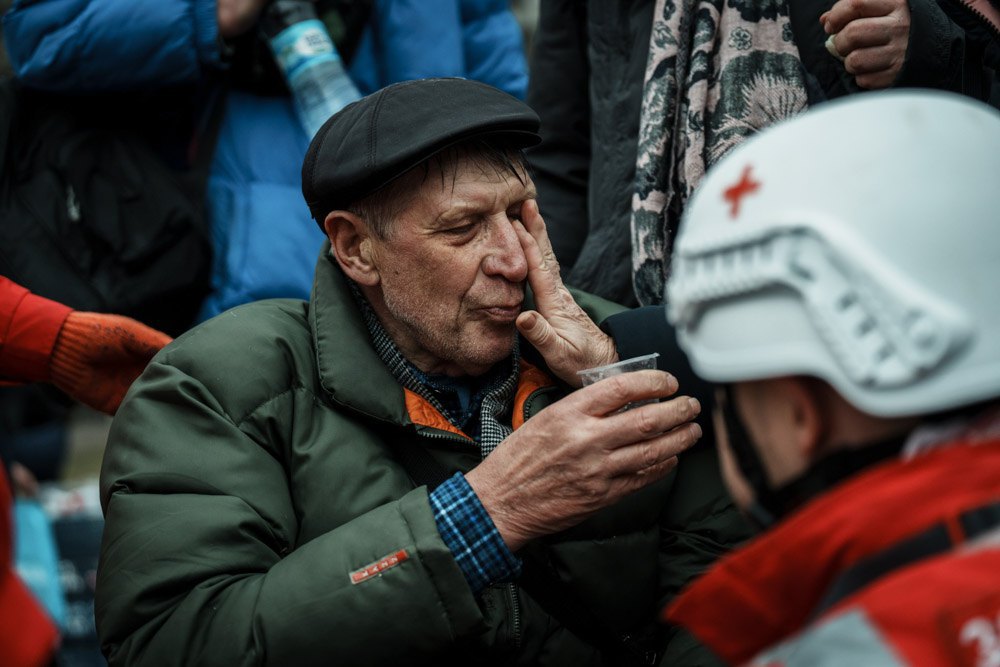
Speaking about Lviv, I do agree with this. I was there during the first two weeks of war and felt the same, like being in Remarque's novels, particularly in “The night in Lisbon''. That breaking point where people, with all the rights and wrongs, were trying to reach the safe America. The majority of Ukrainian refugees are women and children. Well, and old people. Yes, they are lost. They are scared. Even the toughest ones. Plus no one has thought that there would be shelling in Lviv too. Less than in other cities, but still. It’s unclear now where’s safer - in Lviv or in Kyiv.
There are constant sirens and houses that are being destroyed in Kyiv. It affects the psyche, of course.
In reality, people of Lviv should morally prepare for what could happen next. When my friends who are staying in Lviv text me that they don’t leave the bomb shelters… Well.. Let them live like this for now. I hope there wouldn’t be a real need not to leave a bomb shelter. Because if something really starts, they would have enough time for this.
‘In Kyiv’s bomb shelter we won’t be looking for a Shariy’s supporter who can give a ‘different prospective’’
At the beginning there was a phrase that not all stories can be recorded on camera during the war. Let's talk about this in more detail. From a moral and ethical point of view, of course, not from an organizational point of view.
First and foremost the National and International law must not be broken, for example forcing prisoners of war to speak. Definitely not shooting somethings that can be later used by russian propaganda.
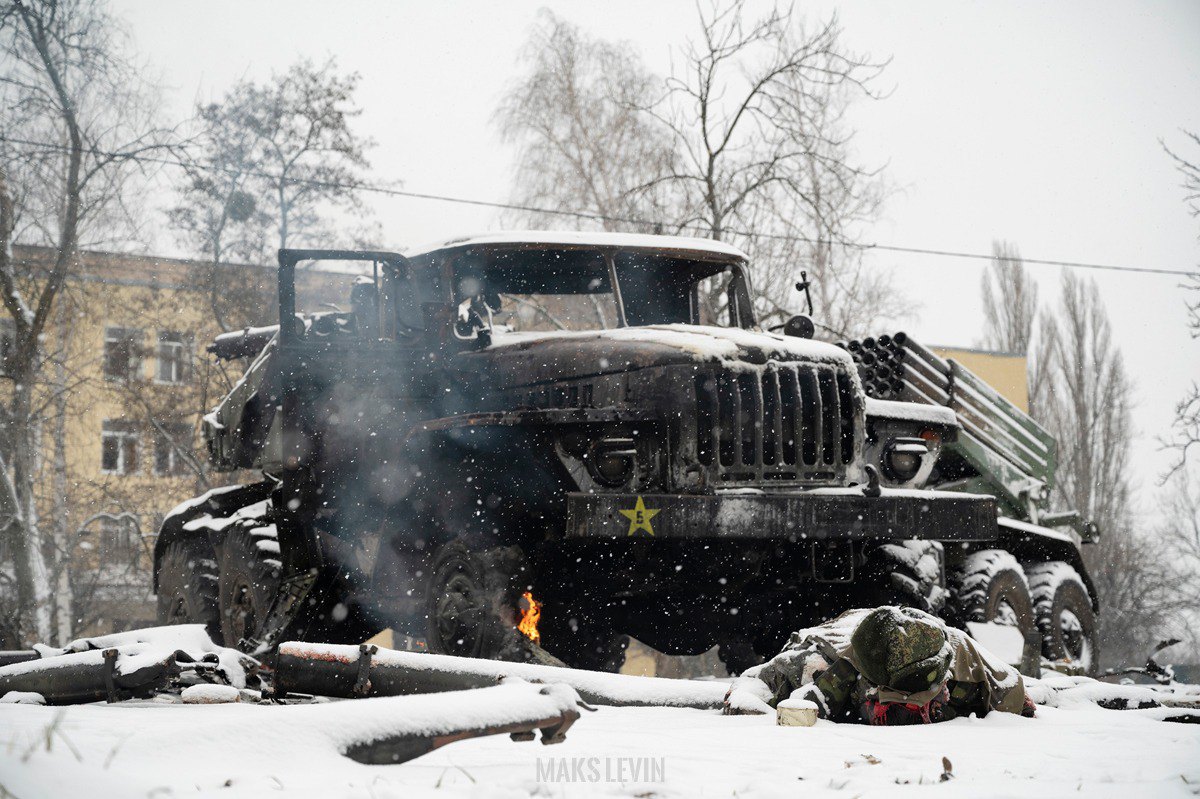
In my opinion, they can use anything. Literally anything.
I’ve noticed and interesting story: Kiselev and other top propagandists started to have openly defective topics. For instance, stories with a lot of sound issues, which we would never allow to air. What does it say? Clearly something isn’t going well. We don’t understand what and how much, but definitely something is wrong.
… Let me continue on a criteria.
We show everything as it is. But it’s clear that In Kyiv’s bomb shelter we won’t be looking for a Shariy’s supporter who can give a ‘different prospective. Same ass, by the way, the public British BBC broadcaster during World War II. In such times it is not up to the standards. I will also add about the restrictions - you can talk to a person only when they themselves agree to it.
Was there something that you filmed, but - when you watched it - it turned out to be so difficult that you decided not to add?
It’s better to ask the editor, but, for sure, there’s a big portion of content that, for various reasons, didn't air. Primarily it’s military content, that could only be shared with a big delay (when the situation has already changed) or just kept for chronicles. As for the emotional part… For example, we had a woman in Kyiv region, exactly at the heart of the fights, buried her husband in the city - he had been shot by russians. At the beginning she was ready to talk about it, but later asked not to publish the interview as she was scared that they could come back and she would get in trouble. Of course we agreed.
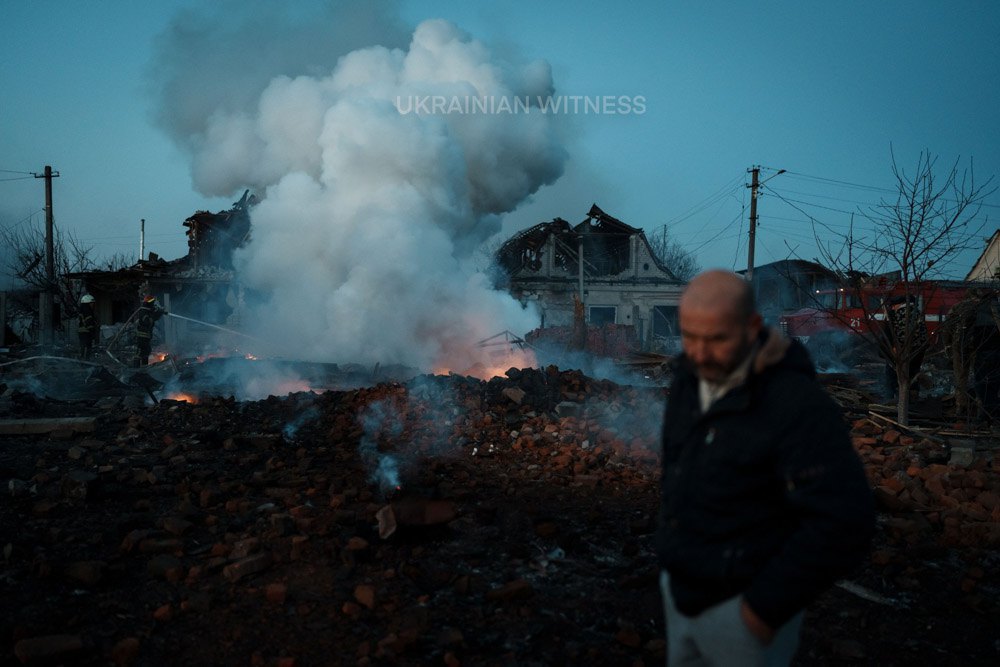
In fact, I think that all these stories of burying people in small towns and villages in Kyiv region, mass graves…It’s one of the strongest images of this war, from a visual perspective.
We had a reportage from the Okhmadyt clinic. There was a terrible doctor’s testimony. She was telling about situations, when, for instance, they receive two messages - three wounded children are on the way: chest, head and neck injuries. Doctors are arranging stuff who will intercept them; prepare an operating room, and, all of a sudden, there’s another call - one child has already died. Then - the third one: one more child has died on the way. They are still waiting for the third kid. After a while there’s another call: the kid can’t be transported as russians don’t let them go through. And that’s it. The phone hasn’t rung any more. The third child’s fate is still unknown.
Unfortunately, there are a lot of stories like this one. But they have a lot of humanity in them. Because doctors in Kyiv, those who stayed, are basically living at work - haven’t even been home. Their dedication is enormous. Honestly, it really positively impressed me.
Let’s be honest, many of us had some stereotypes about soviet-style public medical service. But this…
Look at hospice in the Kyiv region, basically at the front line. The windows and doors of the next house fly out, but no employee is leaving the hospice. And not even trying to. People there are permanently ill and can’t be cured, but still. They aren’t left alone.
Or how animals are rescued. Some people abandon them, others - rescue. I, personally, filmed how people were cutting the bars on the ground floor to rescue a left-behind cat and a squirrel.
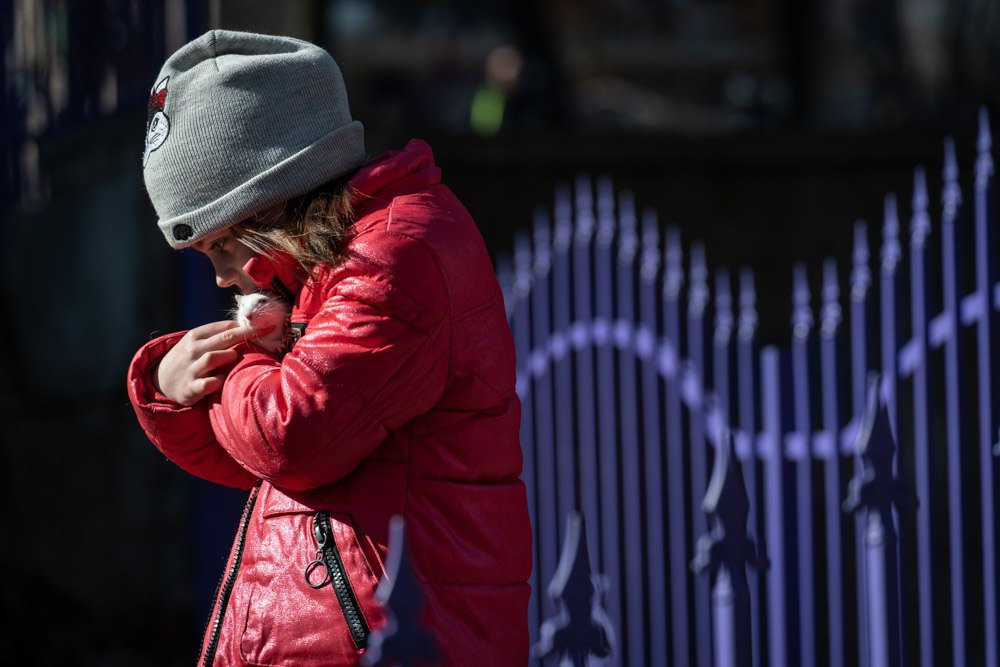
Or how my friend, when it was extremely dangerous by riding a coattail of volunteers, came back to Irpin just to find her cat. As it was soon discovered, the cat was scared by the shelling and ran away. But the attempt to save him was there - without bulletproof vests, any protection, at the risk of her own life.
Or those animal shelters, who stayed open, despite being in the area of direct hostilities?
I would like to repeat: there are many stories like this. Someone has to tell them, document them. And that’s what we do. It might be seen as small stories about small people. But, in reality, these are feats. They have no right to go unnoticed.
The reason I was asking about the geography: many got impressed by the example that the South of Ukraine showed. Preiously they were considered to be vatnyks (vatnyk - a person has a pro Putin position) so to speak, but these people stood with bare hands and flags against the tanks. I don't know what to call it. This is definitely more than a feat.
Today supporting Russia is just dangerous. Not even talking about that it’s just obscene. That part that was always pro-Ukrainian has grown, by multiple times and everywhere. Here is my good friend as an example. He has been living in Germany for a long time, since 2014 was a hardcore vatnyk. When everything had started he called me and apologized, said he understood everything.
There are also cases where people saw through but decided to stay silent. As for the East and the South, people there experience the same as people who stayed in Kyiv - they just stopped being afraid.
I’m certain that the Opposition Platform, Muraev, Shariy electorate has decreased many times. And when it's all over, the whole country will vote in the election in a way that will not make us ashamed. At least I hope so.
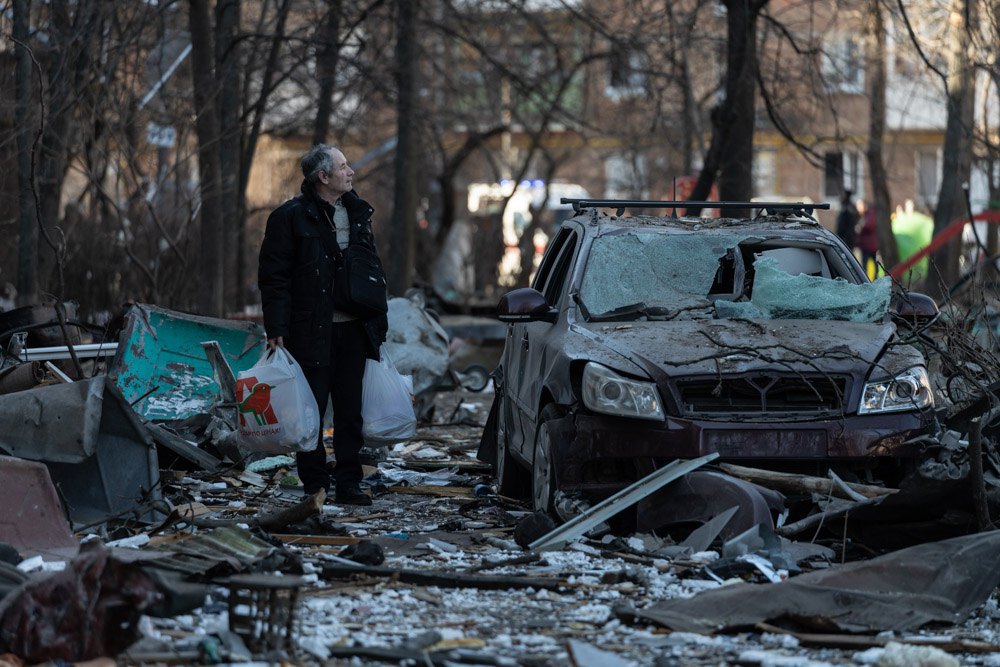
Lastly, I would like to ask about the ‘Ukrainian Witness’ project after the war.
It’s too early to talk about the future now. I’m sure you know the media market situation. It often happens that a person works for a media just for money, dreaming about producing true live high quality non-commissioned journalism. If we have enough such people, and can find financial sponsorship to support such work then maybe we could turn into a new on-line media that has a bit more principles than other market players.
There have been a few attempts in the past, unfortunately unsuccessful - look at “Hromadske”. However, the example of “Liga” and “LB.ua” proves that our people are aware of the importance of paying for high quality journalism, so a fund-raising model is feasible. So yeah, we could turn into a new media, but it all depends on the motivation of the team - if it can reach a new level when it becomes possible.
I agree on the awareness part. People have already realized that the information front is no less important than the military one.
This war began when Russian cameras and journalists came to us in front of Russian tanks. Before that - it was Russian banks. But in general, any war always begins with propaganda. And if we want to avoid this in the future, we need to have sources of information that we trust.
